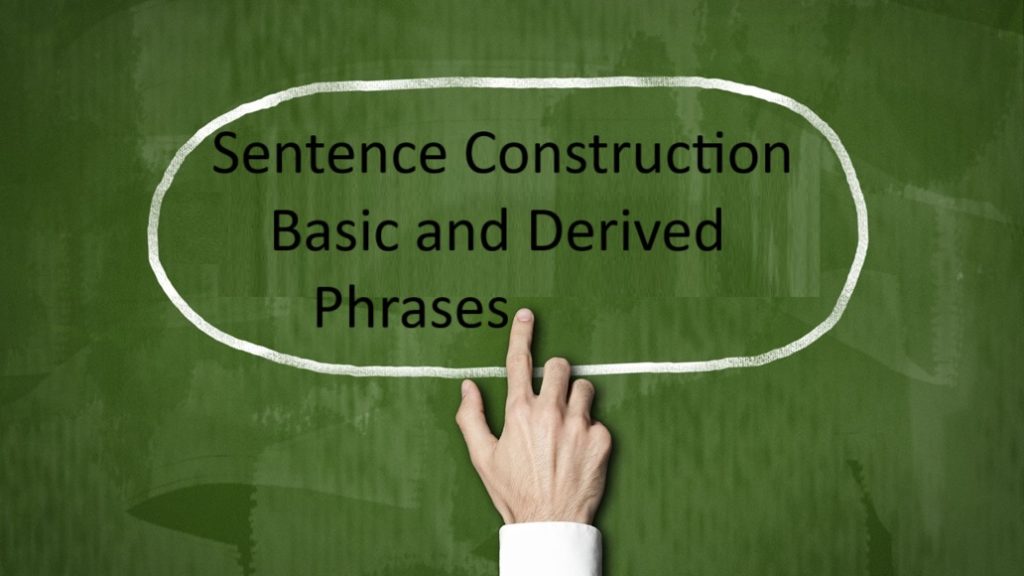A noun phrase commonly has three components, i.e., noun head, determiners, pre & post modifiers or complements. In this post, determiners and pre & post-modifiers have been detailed specially with reference to their capacity to specify definiteness, quantity, and possession of a noun. The learning writers’ competence to use these components for the construction of noun phrases is highly significant for their success in expressing the enriched complete ideas in their advanced academic writing.
1. Determiners
A determiner is a word that specifies the definiteness, quantity, or possession of a noun. In other words, determiners provide additional information about the head noun. This information is necessary to show whether the noun is specific or general, its numbers, or by whom it is owned. Determiners occur in a noun phrase before the adjective that mark some sort of attribution of the head noun (See 4. Noun Phrase Structure).
1.1 Determiners Classes
| Articles | Demonstratives | Possessives | Quantifiers | Ordinal Numbers | Cardinal Numbers |
| a, an, the | this, that, these those | my, our, your, their | all, most, many, some | One, two, three, four | first, second, third |
Determiners can stay as determiners or modifiers.
| Determiner | Modifier |
| i. a. [The aeroplane] had flown away. | i. b. He felt [all the stronger] for having survived this blast |
| ii. a. Who’s [that black person] on the gate. | ii. b. You shouldn’t have climbed [that high]. |
| iii. a. [Many players] were happy. | iii. b. We had witnessed [his many failings]. |
1.2 Determiner phrase
Determiner phrases (DPs) are composed of the quantificational determiners and their dependents. Herein, the determiner stays as the head of the phrase. Commonly, the dependents are modifiers that stay before the head of the DP. For example:
| NPs (DP +N) as Subject | DPs (DP +N) as Predicative Nominative |
| i. a. [Not many customers] were found loyal. | i. b. There were [at most twenty holes] in the bag. |
| ii. a. [Almost every penny] was spent. | ii. b. They had [hardly any energy] left. |
| iii. a. [Some twenty apples] were damaged. | iii. b. They hadn’t [very much money] on them. |
In the examples given above, brackets enclose the NPs and the words in bold indicate the DPs inside the NPs
2. Modifiers
Modifiers are the words, phrases, or clauses that do the function of describing head nouns in a noun phrase. Modifiers can be put into two categories, i.e. inter modifiers and external modifiers. In case they are pre-head modifiers, they occur before the head noun in the form of single adjectives or adjective phrases. When they are post-head modifiers, they may be at the level of phrases or clause. At phrase level, they include prepositional phrases, adjective phrases, and appositive noun phrases. At clause level, they may be in the form of finite clauses or non-finite clauses (See 9. Classification of Pre- and Post-modifiers in Noun Phrase). The details of all these categories are in the following sections.
2.1 Pre-head modifiers
Internal or pre-head modifiers may be at the level of single adjectives, adjective phrases, single nouns or noun phrases which occur before the head noun in a noun phrase. For example:
- I wish you a nice day!
- My new computer is very costly.
- I spent a very happy life when I stayed at Ginza.
- I like that big, black car.
Pre-head modifiers can be of various categories. These categories have been highlighted in the following table.
| ADJP | DP | NOMINAL | Participial Phrase |
| a loyal friend the latest news some very regular workers | another three cases the more than twelve cases | a plastic sheet high density fluid a United States university | the rejected candidate a laughing doll a newly purchased car |
2.2 Post-head Modifiers
There are six kinds of post-head modifiers of a head noun.
2.2.1 Prepositional Phrase Post-head Modifiers
The nouns can be post modified by prepositional phrases. However, the head noun does not license or demand these prepositional phrases. These phrases supply supplementary (additional) details about the head noun. The examples of these post-head modifying prepositional phrases are: the car across the road, medicine for the patient, a wrestler in the arena, a college of physicians, a lab without equipment, etc.
2.2.2 Adjective Phrase Post-head Modifiers
When an adjective phrase post modifies a noun, the adjective head carries its own dependents, especially post-head ones. The adjective phrases which post-modify nouns cannot be placed before the head noun. For example, people fond of new cars, the results most likely to come out, etc.
2.2.3 Appositive NP Post-head Modifiers
The appositive NP post modifies a noun. The significance of the appositive NPs is that they can stand alone in place of the whole NP. For example, the founder of Pakistan Muhammad Ali Jinnah was a great leader, can be written as Muhammad Ali Jinnah was a great leader. Examples of the appositive NPs:
- my brother Aslam
- the rescue service 1122
- our teacher chairman research committee
2.2.4 Non-Appositive NP Post-head Modifiers
The non-appositive NP is different from appositive NP in the sense that it cannot replace the head noun. For example, a man my level is rarely available, cannot be written as my level is rarely available. Examples of the non-appositive NPs are:
- a room this size
- my mentor Raheel
- someone his own height
2.2.5 Finite Clause Post-head Modifiers
Finite clause as post-head modifiers are all relative clauses. For example:
- the person who supported me,
- the car by which he travelled,
- the guidance that he provided me with,
- the mountain climber I met at base camp
2.2.6 Non-Finite Clause Post-head Modifiers
Non-finite clauses may be of three types: gerund-participial, past-participial, and infinitival. For example:
- technicians working on this project,
- a house constructed by that mason,
- the task for you to perform, etc.
3. Combinations and Sequence of Modifiers
Many modifiers can occur within a single NP before or after a head noun. For example:
- a big1 white2 horse [2 modifiers]
- the three1 metaled2 roads the government had to build3 [3 modifiers]
- an old1 Indian2 man with his old wife3 who was staggering along4[4 modifiers]
- that fat1 black2 old3 woman at the university4with the mobile phone5 [5 modifiers]
4. Preferences in the Relative Order of Modifiers
The writers observe preferences in connection with the relative order of modifiers, especially among pre-head modifiers. For example, a tall green tree will be preferred in comparison to a green tall tree. This is so because the adjective marking scalable characteristics are put first and the ones that mark fixed characteristics are put second. Further, numeral modifiers precede adjectives such as five wooden tables. However, the reverse order may occur on some occasions, for example, memorable three years of my life.
5. External Modifiers
External modifiers in an NP are the ones that are distant from head nominal. These modifiers have a number of subtypes which are highly restricted as far as the range of expressions are permissible. For example:
i. First type of these modifiers occur in quantification expressions before various determiners. For example: all the people, both his hands, twice the amount I was anticipating.
ii. The second type of these modifiers is that occur only before the indefinite article a(n). Further, these modifiers are either adjectives or adjective phrases. For example: such a nice performance, too hard an exercise, so difficult a task.
iii. The third type of these modifiers is in which modifiers do not ask for the presence of a determiner. For example: even the experienced scholars, only a doctor, the boss alone, the manager herself, even Shafiq, Shakeela herself
6. The Fused-head Modifiers
Mostly the head noun remains distinct from the dependents in NPs. In some constructions the head noun stays combined or fused with a dependent element (usually determiner or an internal/pre-modifier). It means, a single word plays the role of a determiner or modifier and the head also. This combination is termed as fused-head modifier.
There are three kinds of fused-head modifiers whose examples and explanation are as follows:
- Simple fused-head: We have lots of options, but our opponent doesn’t seem to have [any].
The fused head can be expanded into an ordinary NP with a separate head. The separate head can be retrieved from the context, i.e. we can put any options in place of any.
ii. Partitive fused-head: a. Some of his observations were quite eye-opening. [explicit] b. I have two cars, but [both] are out of order. [implicit]
Partitive fused-head helps the writer to suggest that a part is being denoted instead of the whole thing. When we employ an explicit partitive, a partitive PP complement precedes the fused head such as of his observations in the example given above. The NP some of his observations is partitive in the meaning that it denotes a subset of the set comprising his observations. In simple words, it means some observations of his total observations. The utility of this construction is that we cannot expand the fused construction into a construction with a separate head, for example: *some observations of his observations.
When we employ an implicit partitive, the of the complement is understood and is not overtly expressed. In the example [b], both is understood as both of them, in words ‘both of the cars’.
iii. Special: [Many] would become ready to travel with you to a health resort.
In this subtype, many (i.e. fused head) represents many people. This fused head provides a special interpretation of many as many people. It is so because neither the surrounding text nor the situation of the utterance provides with the concept of people.
On the whole, this post has presented information about the function of determiners and modifiers in a noun clause. The function of these components of a noun phrase is to specify definiteness, quantity, or what head noun possesses. Further, modifiers have been placed into two classes, i.e. internal modifiers and external modifiers. Furthermore, it has also been shown how modifiers are sequenced in a noun phrase along with the preference in sequence. Lastly, fused-head construction of modifiers has also been dealt with. The information about determinatives and modifiers in this post is crucial for writers as it can help them enhance their advanced writing capability.
Sources Consulted
- https://dictionary.cambridge.org
- Huddleston and Pullum (2007)
- Payne, T. E (2010)


